I first saw Edie Windsor at a talk she gave with attorney Roberta Kaplan at the 92nd Street Y in Manhattan last January. I learned only a couple of days before that she would be appearing, and spent my last dollar on the ticket. (At the time I was 24, a recent transplant to New York and impressively broke.) It was freezing cold, a bit of a trek from where I lived in the Bronx, and I had to work early the next morning. But I didn’t care, because I knew who this woman was, and I knew I had to see her.
Edith “Edie” Windsor, in the ninth decade of her life, brought the case to the U.S. Supreme Court that was responsible for the Defense of Marriage Act, or DOMA, being ruled unconstitutional. Edie had been with her love, Dr. Thea Spyer, for more than 40 years when they were married in Toronto in 2007. In 2009 Thea died of an aortic stenosis after living with progressive multiple sclerosis for two decades; Edie cared lovingly for her the entire time. Because of DOMA, a federal law passed in 1996, Edie and Thea’s marriage did not qualify them for any federal protections, including estate tax exemption for surviving spouses. As a result, a grieving Edie was forced to pay the federal government $363,053 in estate taxes on property Thea had left to her. Obviously, this was an incredible insult—not only to their marriage and the deep love they shared, but also to Edie’s dignity as a human being. Even so, she could have made the choice to give in, do nothing and quietly live out the rest of her life in mourning. Instead, she made a decision for which every member of our community will be forever in her debt; she decided to fight back.
Before bringing her case against the government in 2010, Edie filed for a refund from the IRS, and her request was denied because of DOMA. Since its passage by Congress, DOMA excluded lesbian and gay individuals from approximately 1,100 federal provisions. Over and over, same-sex couples were forced to face indignities and insults just like Edie, for the simple reason that the persons they loved and were committed to for life were those of the same gender. Choosing not to back down, Edie started looking for legal representation. The attorney she found was Roberta Kaplan, a brilliant litigation partner at Paul Weiss, et al, who agreed to take on the case pro bono after hearing Edie’s story. Kaplan had fought for gay rights in the past, and was clearly the right woman for the job. On June 26, 2013, after a legal battle that took nearly three years, saw plenty of resistance and had the entire LGBT community on edge, the Supreme Court decided 5-4 in Edie’s favor. DOMA was declared unconstitutional. A huge barrier against complete equality for gay Americans had been knocked down, thanks in large part to an incredibly brave and tenacious 83-year-old.
When I arrived at the 92nd Street Y that night, I was excited. I fully expected to be inspired and knew it would feel amazing to be in the presence of someone who had done so much for me and so many others about whom I care deeply. I had that shaky feeling everyone gets when they’re about to see one of their heroes in person. I did not expect, however, to be as moved as I was. I was captivated. Not only with Edie herself, but with her story—specifically, her love story.
Edie met Thea in 1965 in a restaurant in the West Village, and that first night they danced until their friends forced them to leave. Edie was smitten, as Thea was by all accounts a striking and intelligent beauty. She was also a very successful clinical psychologist. Kaplan talked about the fact that she was aware of Thea when she first heard about Edie’s case because, “if you were a lesbian in NYC for the past 35 years and looking for a lesbian psychologist, you went to Thea Spyer.” Edie was quite successful in her own right as a Senior Systems Programmer at IBM, and eventually achieved the highest possible technical rank in her field. It took Edie and Thea a couple of years to get together, but once they did, that was it. They moved in together—and in addition to their apartment in the city, they had a cottage in the Hamptons. They both loved to travel, too, and did so extensively.
Listening to Edie talk about Thea was a beautiful thing. Her love for her late partner was palpable. When Judy Gold, the moderator, asked Edie if they ever fought (since their relationship sounded so perfect), Edie provided several stories: “One time she threw a book through a door,” Edie offered, adding how that night they went to bed separately. In the middle of the night, Edie got up and cut out a red paper heart and used it to cover the hole so that when Thea woke up, she wouldn’t have to remember being mad. She began her next story with, “she actually hit me once,” and then went on to clarify. Very early in their relationship, not yet living together or committed, they were sleeping in the middle of a jungle with rabid bats flying about, and all they had for protection was a thin mosquito net. Not surprisingly, Edie was unafraid and kept falling asleep. Thea was terrified, and it made her furious that her partner kept nodding off, so she socked her to wake her up. Edie told herself that once they returned to civilization, she’d never see this person again. But later on in the trip, Thea saved her life in some rapids since she couldn’t swim at all, and once they were safely back on the raft, Edie told her, “You saved my life; now you’re responsible for it.” That was a sentiment that would go on to define their relationship. Theirs was a wonderful partnership in which, as Edie put it, each cared for the other’s well-being as much as her own, especially when Spyer was stricken with progressive multiple sclerosis, and later rendered a quadriplegic by the disabling disease. Edie took loving care of Thea for years, watched her die, and then felt the pain of her own government invalidating their love. I’m not sure how someone is able to get out of bed after such an ordeal, let alone summon the strength to stand up and fight the way Edie fought. I think it takes amazing courage and a powerful love to do something like that. Edie has both.
No one went with me to hear Edie speak that night. I invited several people, and although all were interested, nobody bit. This definitely had something to do with the cold weather and out-of-the-way location, but it was more than that. I think there’s a serious disconnect between my generation of lesbians and the ones who came before us. Our attention has turned to the hip and the now, with far too little appreciation given to pioneers like Edie who have struggled and battled fiercely so that we can live in the vastly more accepting climate we enjoy today. We can now go out every night of the week and find a venue or a party that is open and accepting of lesbians—and we take that for granted. God knows not everything is perfect; in so many ways, we still have a long way to go. But no one can deny that things are immeasurably easier than they were when Edie moved to New York in the early ’50s. Now, in being able to be out and proud, we are standing on the shoulders of giants. Edie Windsor, all five feet of her, is one of those giants.
Edie lived her life, albeit quietly, as a lesbian in a lesbian relationship at a time when people were still being arrested for same-sex relationships. The Diagnostic and Statistical Manual of Mental Disorders (DSM) still had homosexuality listed as a mental illness (it was finally removed in 1973). She had a hard time meeting women at first, because although there was a thriving lesbian scene in the city, it was underground and hidden, for obvious reasons. Today, we can open our dating apps and find a line-up of girls to meet, making a date every night of the week if we choose. We can go out and party with other lesbians at women’s events, organized for women by women, etc. It’s certainly not easy for everyone. We all have our struggles, and there are plenty of battles yet to be fought—but more and more, we’re able to live out loud, as we are. We owe this freedom to people who lived their truths when living them meant something very, very different. We owe this to brave people like Edie. We need to remember that.

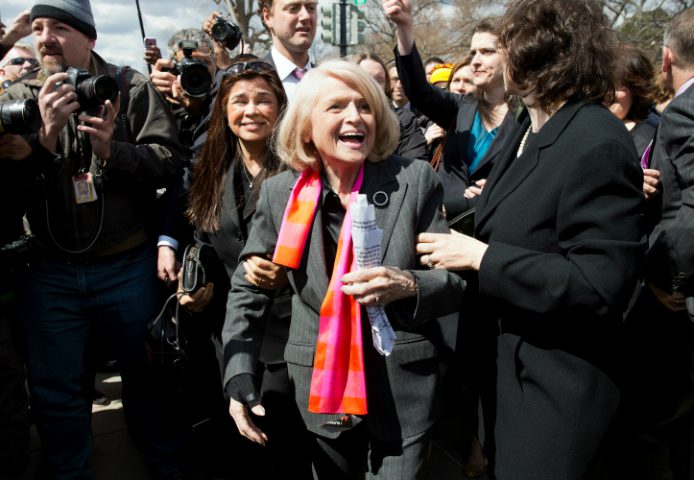
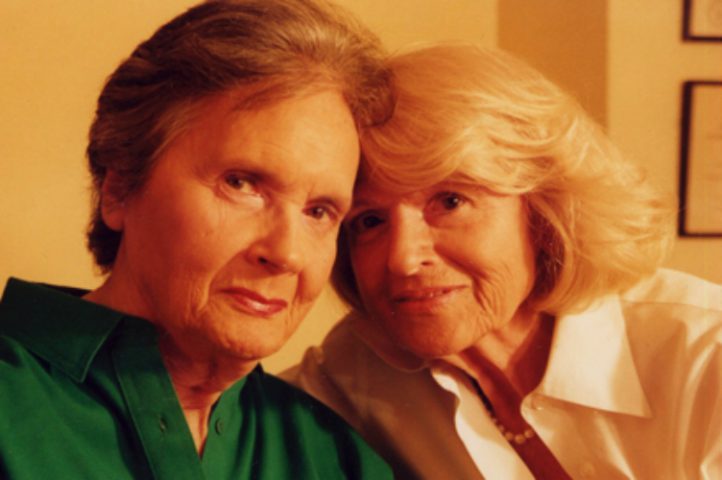
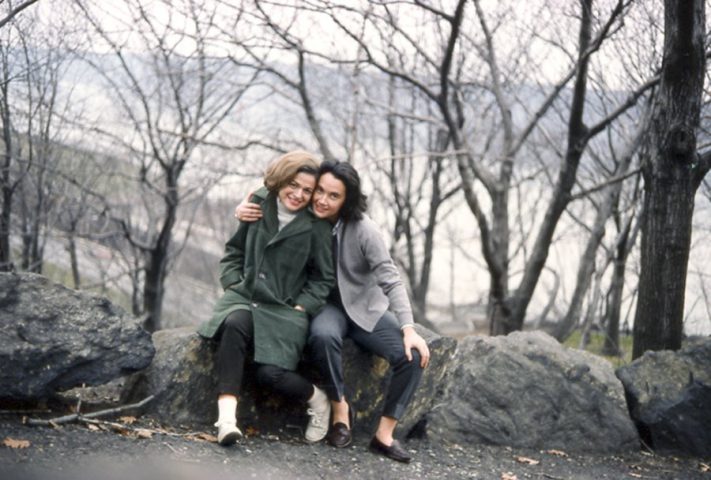
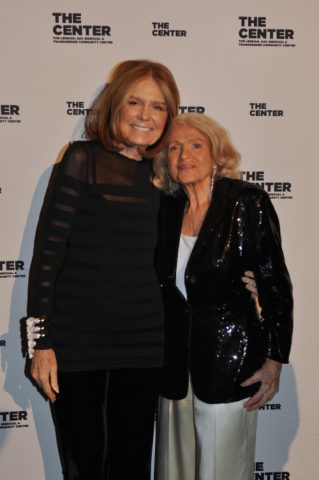
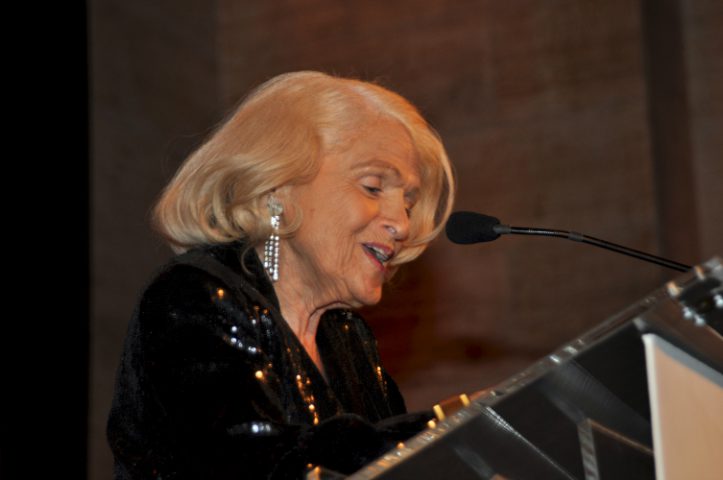
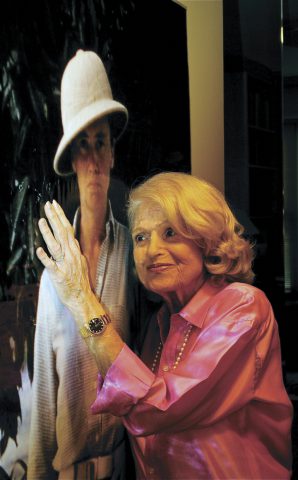
What Do You Think?